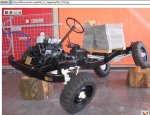If you listen to what the speaker in the debut says, I believe he's telling us that the Tacoma will not get a diesel, ever. I am referring to the comparison he does with the Tundra. He states that though they may share design aspects on the exterior, they are two completely different trucks with different purposes. If you drank every time he said "adventure", you would have been plastered by the end of the intro. It seems that is where they want the Tacoma to go. It's not a solution to a small towing rig. It's not the truck you buy if you want to haul large loads on the weekend. It's the camping, road trip, trail duty surf truck. The good news is that probably means it won't grow in size and maybe the Tundra will get a diesel option if that's what you are lusting for. Just my opinion



